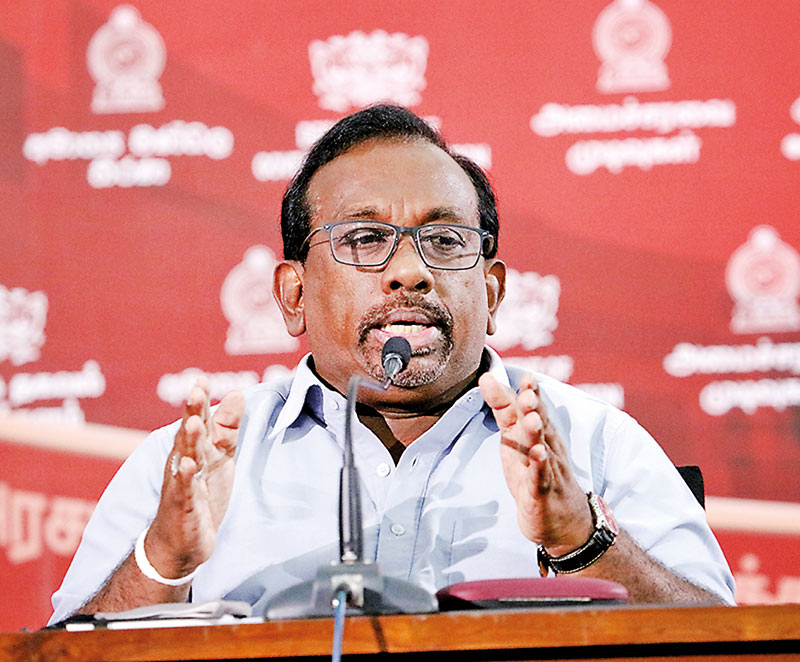Tuesday Feb 24, 2026
Tuesday Feb 24, 2026
Wednesday, 26 January 2022 04:41 - - {{hitsCtrl.values.hits}}

Agriculture Minister Mahindananda Aluthgamage
By Charumini de Silva
The Cabinet of Ministers on Monday approved Rs. 40 billion to compensate 1.5 million paddy farmers for their crop loss following the Government’s decision to ban agrochemicals last year.
“As promised by the Government, the Cabinet of Ministers on Monday unanimously agreed to allocate Rs. 40,000 million from the previously announced Rs. 229 billion relief package.
The compensation will be disbursed among 1.5 million paddy farmers who cultivated during the Maha season which commenced in September 2021,” Agriculture Minister Mahindananda Aluthgamage said at the post-Cabinet meeting media briefing yesterday.
Noting that 1.5 million farmers who were involved in paddy cultivation in 800,000 hectares during the Maha season, Aluthgamage said that they were in the process of evaluating the overall harvest and if they find there has been a drop in production the Government would extend compensation.
“We made field visits to different parts of the country and observed that they had experienced a drop in harvest which varied from districts. In some areas, the drop in production was 10%, while in certain parts it was around 20-30%,” he added.
The Minister also stressed that paddy farmers who commenced cultivation on time did not see any crop loss.
“There will be no political favouritism, or any other influence, extended for the distribution of the compensation. The disbursement of the compensation will be made equally among all paddy farmers that experienced a drop in harvest,” Aluthgamage assured.
Paddy is one of the main agricultural cultivation products, with over 30% of the total workforce directly and indirectly engaged in it, while rice is the staple food of 22 million Sri Lankans. Paddy is cultivated in all 25 districts during the two monsoon seasons – Maha and Yala (In Sinhala, Maha means bigger and Yala means lesser). Maha season starts in September and ends in March during the North-East monsoon, while the Yala season starts in May and ends in August.
Following the unsuccessful implementation, farmers countrywide demanded the Government compensate them as promised after they had incurred a drastic drop in production as a result of a lack of agrochemicals.
On 22 April 2021, President Gotabaya Rajapaksa announced plans to completely stop the importation of chemical fertiliser to ensure the right of the people to a ‘toxin-free diet’. The policy decision, which was announced in the wake of COVID-19, led to a severe economic crisis exacerbated by a significant drop in foreign currency inflows from tourism and workers’ remittances. The move also resulted in a food shortage, leading to staples being like rice being rationed, as fruit and vegetable prices skyrocketed.
On 21 November 2021, the Government revoked the ban on agrochemical imports. According to President Rajapaksa, Sri Lanka spent around $ 400 million per annum on fertiliser and pesticides. He also said any loss of yield and income by farmers would be compensated from the savings of foreign exchange otherwise incurred on the import of fertilisers.
“The intention of the Government was to feed the citizens with toxin-free food. As the Agriculture Minister, I reiterated and promised to compensate farmers if they incurred any crop loss due to organic cultivation. I believe people will no longer blame the Government in this regard,” Aluthgamage quipped.